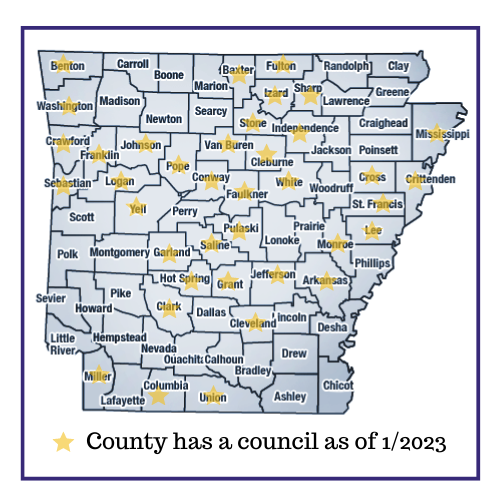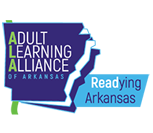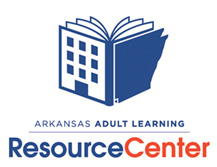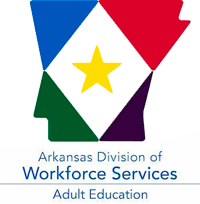One of the most common questions asked of directors is how to tell if an adult struggles with reading. If you missed the video on signs that an adult struggles with literacy, check it out here! Another common question is how to help an adult access the services that are available. Unfortunately there is some stigma around struggling to read, and in an effort to be sensitive, we can avoid the conversation altogether. This post will give you some tools to offer services in a supportive and caring way.
Here is a link to the current map of local councils. Choosing a county will give you the contact information for that council. You can see a map of available councils below.

By far the easiest way to do this is in a group setting. By simply sharing that the services exist with a group in staff meetings, Sunday school class, service club meeting, or other group can open the door to further conversations. You can share that you volunteer with a local council and the services they offer, along with contact information. This avoids singling anyone out and adds to efforts in your community to destigmatize asking for help.
Another way to hold this conversation is by focusing on the person’s goals or a specific task they are trying to accomplish.. For example, if the adult shares that she would like to go back to college, but doesn’t read well despite a high school diploma, you could mention that the literacy council can help her brush up on those skills. Perhaps the adult has struggled to pass the driver’s license test, you could share that the local literacy council can help them study for free.
When discussing the topic, research suggests you should avoid the word “basic” or “learn to read.” Since most adults who need literacy services read some, these phrases can be off-putting. Rather, try to use “improve reading” or just the language explained above about trying to reach a goal.
It also helps to share your experiences as a life-long learner. Whether you learned to knit, went back to school later in life, studied a foreign language, or just tried out a new recipe, share it! There is unnecessary stigma around improving literacy as an adult, and you can help dispel that stigma by supporting the idea that any kind of learning is valuable and worth celebration.







